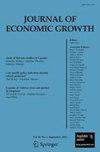为什么富裕家庭会提高生育率?儿童保育的不平等和市场化
IF 2.3
1区 经济学
Q2 ECONOMICS
引用次数: 33
摘要
收入和生育率之间的负相关关系持续了很长时间,以至于它的存在常常被认为是理所当然的。一种建立在这种关系之上的经济理论认为,不平等的加剧导致贫富之间的生育率差异更大。我们表明,在1980年至2010年期间,收入与生育率之间的关系趋于平缓,这是一个不平等加剧的时期,因为高收入家庭提高了生育率。这些事实对标准理论提出了挑战。我们提出父母时间成本的市场化可以解释收入与生育之间的变化关系。在对美国数据进行训练后,我们从理论上和定量上证明了这一结果。我们探讨了变化的差异生育率对总人力资本的影响。此外,影响市场化成本的政策,如最低工资,对高收入妇女的生育率和劳动力供应有负面影响。最后,我们将讨论这一理论对婚姻分拣经济学的见解。本文章由计算机程序翻译,如有差异,请以英文原文为准。
Why did rich families increase their fertility? Inequality and marketization of child care
A negative relationship between income and fertility has persisted for so long that its existence is often taken for granted. One economic theory builds on this relationship and argues that rising inequality leads to greater differential fertility between rich and poor. We show that the relationship between income and fertility has flattened between 1980 and 2010 in the US, a time of increasing inequality, as high income families increased their fertility. These facts challenge the standard theory. We propose that marketization of parental time costs can explain the changing relationship between income and fertility. We show this result both theoretically and quantitatively, after disciplining the model on US data. We explore implications of changing differential fertility for aggregate human capital. Additionally, policies, such as the minimum wage, that affect the cost of marketization, have a negative effect on the fertility and labor supply of high income women. We end by discussing the insights of this theory to the economics of marital sorting.
求助全文
通过发布文献求助,成功后即可免费获取论文全文。
去求助
来源期刊

Journal of Economic Growth
ECONOMICS-
CiteScore
3.70
自引率
4.30%
发文量
20
期刊介绍:
The Journal of Economic Growth, is designed to serve as the principal outlet for theoretical as well as empirical research in economic growth and dynamic macroeconomics. The editorial board consists of prominent researchers in the fields of economic growth, dynamic macroeconomics, international economics, urban economics, migration, and development, who are committed to academic excellence. Members of the editorial board are actively involved in the refereeing process of each paper and assure that the review process is of an exceptional quality. Furthermore, the journal commits itself to a timely response. The journal encourages the submission of high quality research broadly concerned with: Neoclassical Growth Models
Endogenous Growth Models
Income Distribution and Growth
Human Capital and Growth
Fertility and Growth
Trade and Growth
Development and Growth
Financial Development and Growth
Migration and Growth
Endogenous Technological Change
Money and Growth
Political Economy and Growth
Overlapping-Generations Models
Economic Fluctuations. 5-Year Impact Factor: 6.032 (2008)*
Subject Category ''Economics'': Rank 3 of 209 Officially cited as: J Econ Growth
 求助内容:
求助内容: 应助结果提醒方式:
应助结果提醒方式:


